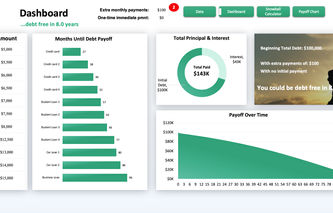Have you ever had this conversation with your spouse? How much is enough? How much should we have saved up for retirement before we can call it quits? $1 million? $2 million?
For my wife and I, we believe we need $3 million to retire comfortably. This begs the question..."What is the Interest on 3 million dollars?" And, should this be your goal too?? Then, once you get it, what do you do with it? How do you invest it? Have you had these same questions? Yeah…us too! Let’s find the answers together.
If you like this article, check out the interest earnings within the posts listed below:
And take a serious look at our Best Investment Apps piece if you're looking to invest.
How Much Do Banks Pay in Interest on $3 Million ?
What kind of money will the bank pay out on a big chunk of cash? Another way of asking this question might be, “How much will I earn on $3 million in savings?”. No reason to belabour the point here.
Banks will likely pay out just 0.5%-1.0% on your million bucks. This will produce between $15,000-$30,000 a year. Not chump change, but probably not enough to live on for the rest of your life. A couple years ago, you could have found savings rates of 1.5%-2.0%.
If that ever comes back, then you could earn between $45,000-$60,000 a year with your $3 million in savings. But, until that happens, you may want to find some investment alternatives.
Interested in becoming wealthy yourself? The year 2023 was a good one for Yieldstreet and Crowdstreet for passive income. Here's our Crowdstreet review if you're interested.
What is the Interest on $3 Million Dollars?
With $3 million, you can earn between $15,000 to $300,000 a year on interest. If you make the right investment choices and have a diverse portfolio, $3 million is more than enough to live off and retire. Based on my research and experience, here are the rates for the following investments.
Savings: 0.5%
Certificate of Deposit: 0.65%
Short term government bond: 1%
Short term corporate bond: 2-3%
Annuity: 3%
Real Estate: 7%
S&P 500 Index Fund: 10%
The real estate percentage is my estimate based on the crazy price of homes today (rental rates have not kept up with housing prices). And, the S&P 500 is based on the historical average when you include the dividend reinvestment.
Here's a closer look at how much annual interest you'll get on 3 million dollars—
With a 0.5% savings account: $15,000 a year
1% government bond: $30,000 a year
3% annuity: $90,000 a year
7% real estate: $210,000 a year
And, 10% in S&P 500: $300,000 per year
You might immediately choose the largest earning option, but be careful with this. If this is your entire nest egg, you may not want to be so aggressive. We've all seen that stocks can drop substantially. While the S&P 500 is diversified with 500 different companies, there still is risk of losing many hundreds of thousands of dollars here.
Choose wisely and do what's best for you. Don't always choose the options with the highest earnings potential.
Looking to Build Massive Wealth? The stock market is volatile and shouldn't be your sole investment strategy. Consider adding these top alternative investments to your portfolio:
NAME | DESCRIPTION | MIN INVESTMENT | TARGET RETURNS | LEARN MORE |
Vinovest | Buy and sell investment grade wines---from Burgundy, Bordeaux, and beyond | $1,000 | 12%-16% | |
Fundrise | America's largest direct-to-investor real estate investment platform. Over 330,000 investors. | $10 | 9%-12% | |
Crowdstreet | The leading online real estate investing platform---470 deals and $1.65 billion in investments. | $25,000 | 9%-24% | |
Where investors can buy shares of great masterpieces by artists like Banksy, Monet, and Warhol | $10,000 | 10%-25% | ||
Yieldstreet | Private investment opportunities in art, real estate, legal finance, and more. | $2,500 | 3%-18% |
Interested in investing? Here's a complete list of the best stock apps and the best investment apps.
What is the Interest on 3 Million Dollars a Month?
If you had 3 million dollars, then what would the interest be on it per month? Using the same investment figures as above, here’s how much you’d earn each month on $3 million:
0.5% savings account: $1,250 a month
1% government bond: $2,500 month
3% annuity: $7,500 a month
7% real estate: $17,500 a month
And, 10% in S&P 500: $25,000 per month
Well wouldn't THAT be nice? To have $3 million and earn $25,000 every month on your investments? Heck yeah!
It's certainly not easy to save that much, and you really have to be a patient and confident investor to earn 10% on your money. But, it's certainly possible, and it would make for a FANTASTIC retirement!
What is the Interest on 3 Million Dollars…If Left Alone…??
Let’s say you decide that $3 million is the amount you're targeting for your retirement. But, for simplicity sake, let’s say that you’re able to leave your nest egg alone and can just let it grow for a couple more decades.
You know…maybe you can live on some other savings plus your social security or pension payments.
So you’re able to leave the entire $3 million invested for the long-term. If your money compounds annually, here’s the interest on $3 million (ie. the potential answer to the question, “what is the interest on 3 million dollars”….if it were left alone and reinvested?):
2% interest for 20 years = total after 20 years of $4,473,984
4% interest for 20 years = total after 20 years of $6,667,746
6% interest for 20 years = total after 20 years of $9,930,613
8% interest for 20 years = total after 20 years of $14,780,408
10% interest for 20 years = total after 20 years of $21,984,221
What Are Sustainable Withdrawal Rates: The Key to Perpetual Income
The example above looks pretty awesome - I mean to have over $20 million in your account? Whoa. But, it's honestly pretty unrealistic.
In your case, you probably don’t want to know just the interest on $3 million. You’re probably going to make some withdrawals on that money over the years, right?
Instead of just investing for life, you’ll likely save diligently over many years, reach that $3 million mark, and then potentially retire and start drawing on those funds over (hopefully) a long period of time!
What you want to look for is the sustainable withdrawal rate: the percentage of your savings that you can take out for living expenses each year without ever exhausting your funds.
Fidelity gives 4%-5% as a general rule of thumb, but it depends on a few factors.
Your annual spending
The length of your retirement
Inflation rates
Rates of return on your investments
Inflation is out of your control, but the others are somewhat impacted by your choices. What you can control, to a certain degree, is how much you spend per year.
I have been a long-time fan of Mr. Money Mustache. He points out that if you can ratchet down your expenses now, no matter what your age, you’ll reap double the benefits in retirement.
Looking for a monthly budget template? Follow the link for a comprehensive spreadsheet that will automatically create your budget for you. All you need to do is enter your income and it does the rest.
Here’s what decreasing your spending does for you:
Leaves you more to save and invest over your working career.
And, it means you’ll need less money to live on once you’re retired.
You are also largely in charge of the length of your retirement
No, you can’t predict exactly how long you’ll live for…But you can make reasonable assumptions based on your family health history, your lifestyle, etc.
Decide when to retire based on when you think you’ll reach your optimum total retirement funds.
Predicting your rate of returns
As far as rate of return, you get to decidehowyou’ll invest your money. If you have a basic 401(k), you usually have options of types of funds based on your risk tolerance.
While you can’t control the markets, you can choose the types of investments to make, which impacts your overall returns. After reaching that total, your interest on 3 million dollars can fund however many years you need it to.
Interest on 3 Million Dollars for a Sustainable Retirement
$3 million is a hefty amount of money if you’re retiring in the next few years. If you invest well, you can live quite luxuriously on that amount.
Let’s look at your “safe” withdrawal rate if you think about the interest on 3 million dollars in your 401(k), for example.
Generous Retirement Example
$3 million starting balance at 4% rate of return
30-year retirement (a pretty lengthy retirement)
$165K withdrawal per year
Using Bankrate’s calculator, in that example, you’d still have $189K left in your accounts by year 30. Ummm...if I had to get by on $165k a year...I bet I could do it. :) That would be a pretty nice retirement!!
More Frugal Retirement Example
$3 million starting balance at 4% rate of return
30-year retirement
$100,000 withdrawal per year
You’ve cut your spending a bit and kept the rest the same, leaving you with over $4.0 million after 30 years! This would enable you to still live a very nice lifestyle in retirement, and you can even leave a robust inheritance.
Super-Early Retirement Example
This is my personal favorite. Check this out.
$3 million starting balance at 4% rate of return
50-year retirement (retire at 40 and live to be 90!)
$100K annual withdrawals
End up with $5.8 million even after 50 years of retirement! Or withdraw/spend a bit more and be totally fine.
Your spending likely wouldn’t stay exactly at the $100K number every year in an early retirement, but you if you're right around there, you'll almost certainly have millions left in retirement.
Keep Playing With The Numbers
If you play with the numbers, looking at the interest on $3 million, $2 million, or perhaps $1M, you can check out different scenarios.
Maybe you plan on working until age 70 and you anticipate living to be 90. You’d only need to finance 20 years of retirement in that case.
Or if $100K annual spending sounds too low for you, maybe $130K is a good middle ground. Withdrawing $130,000 a year for 50 years after retiring early would still net you $958K at the end of your life!
Interest on 3 Million Dollars – Is It the Right Number For You?
$3 million sounds like a lot, but when the cost of living doubles every 20 years, it likely just won't last like it used to. Still a lot of money, but you can't just spend your money foolishly in retirement and expect it to last forever.
Based on the examples we outlined above, if you retire at 65 and live for 30 years, you can withdraw roughly $165,000 a year. Any more than that and you’re at risk of running out of money.
Also, keep in mind that inflation will make $165,000 seem more like $82,000 in 20 years, and only $41,000 in 40 years.
If you live on $100k or less right now, then you'll probably do just fine with $3 million in retirement.
Don’t Fear Your Retirement – Embrace It!
Some people can save up $3 million before they retire. Most can’t. If you can only reach the million dollar mark and want to retire, then maybe you should just go for it!
But, instead of sitting on the beach and buying everyone’s pina colada, maybe you want to pursue a fun side hustle a few hours a week! It would give you purpose and provide you an income to boot!
So, while many of the financial gurus will try to scare you into working until you’re 75 to reach a ridiculous nest egg figure, choose to march by the beat of your own drum instead.
You might not have $3 million. Heck, you might not even have $2 million in retirement! But, if you can spend less and perhaps create some side hustle income, then it might be time to give retirement a shot!
Just remember, you can’t prepare for every possibility in life. But you can build in margins for error in your calculations. The 4% rule is a guideline—you can adjust that to be confident your finances can handle life’s curveballs.



.jpg)


